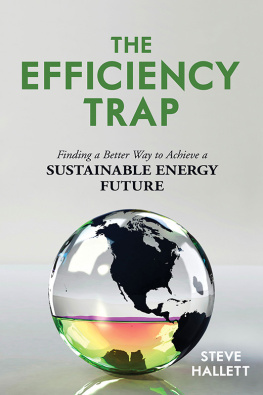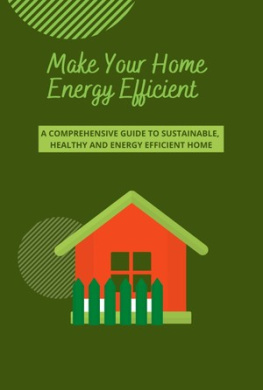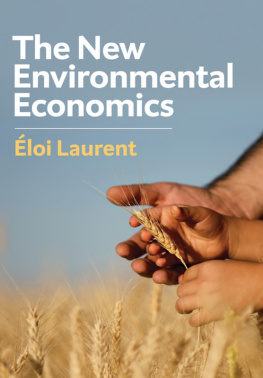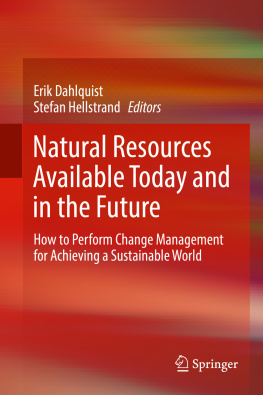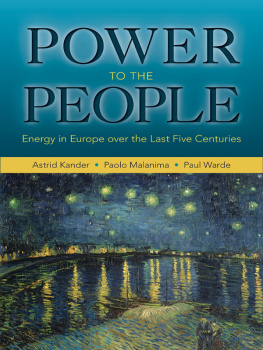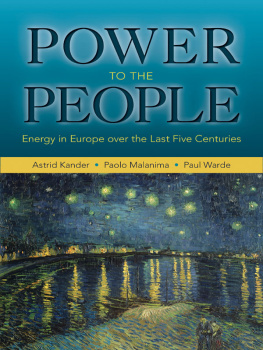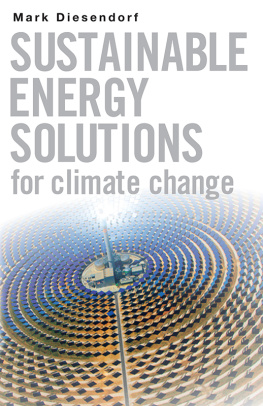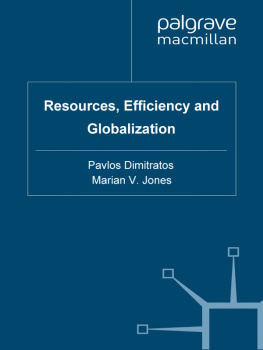Published 2013 by Prometheus Books
The Efficiency Trap: Finding a Better Way to Achieve a Sustainable Energy Future. Copyright 2013 by Steve Hallett. All rights reserved. No part of this publication may be reproduced, stored in a retrieval system, or transmitted in any form or by any means, digital, electronic, mechanical, photocopy-ing, re-cord-ing, or otherwise, or conveyed via the Internet or a website without prior written permission of the publisher, ex-cept in the case of brief quotations em-bodied in critical articles and reviews.
Prometheus Books recognizes the following registered trademarks and service mark mentioned within the text: Airbus A380, Amazon.com, Amazon, Barbie, Cheetah, Chevrolet Volt, Cineplex, eBay, Facebook, Ferrari, Ford Escape, Ford Expedition, Ford Focus, Freon, Hummer, iPad, Lean Six Sigma, McDonalds, Nissan Leaf, Nutella, Roundup Ready, Roundup, Six Sigma, Toyota Corolla, Toyota Prius, Walmart, Wii, Xbox, Yahoo.
Cover image 2013 Maciej Frolow/Media Bakery
Cover design by Jacqueline Nasso Cook
Inquiries should be addressed to
Prometheus Books
59 John Glenn Drive
Amherst, New York 142282119
VOICE: 7166910133
FAX: 7166910137
WWW.PROMETHEUSBOOKS.COM
17 16 15 14 13 5 4 3 2 1
Library of Congress Cataloging-in-Publication Data Pending
ISBN 9781616147259 (pbk. : alk. paper)
ISBN 9781616147266 (ebook)
Printed in the United States of America on acid-free paper
To Dan, Pat, and Sami


I believe that one ought to have only as much market efficiency as one needs, because everything that we value in human life is within the realm of inefficiencylove, family, attachment, community, culture, old habits, comfortable old shoes.
Edward Luttwak, Turbo-Capitalism:
Winners and Losers in the Global Economy
There is very little ambiguity about the fact that efficiency is a virtue. The highest praise a letter of recommendation might contain is likely to be So-and-So has been one of our best employees: she is very efficient. I feel good when I do something efficiently, such as finishing a report on time or leaving the house early enough in the morning so I dont have to drive like a bat out of hellwasting gasto get to work on time. I feel downright heroic if I remember to buy beer on the way home so that I dont have to go out again. I feel virtuous when Im efficient enough to keep a clean towel in the bathroom so I dont have to waste time running naked and wet through the house looking for one. I feel doubly virtuous if Im efficient enough to hang the thing up after Ive used it (a rare occurrence, alas) so that it can dry.
Efficiency is prized so highly that inefficiency, its evil twin, might well qualify as the eighth deadly sin. A coworker is likely to be gossiped about at the water cooler for being inefficient. Can you believe how long it took him to write that report? Governments can be famously inefficient, and theyre often despised for it. Perhaps the construction of a local road ran over budget and was finished a year late: unforgivable inefficiency. One of the excuses for dispossessing millions of people from their land by pioneers has been that the native residents were standing in the way of progress by not using the land efficiently.
The Latin word efficere is the root of the words efficiency, effectiveness, and efficacy, words that are often used interchangeably but do not have the same meanings at all. Effectiveness and efficacy simply refer to how well something works. Efficiency is the amount of work generated by a given amount of an input.
Engineers are not confused by the term efficiency. To an engineer, efficiency is the amount of work generated per unit of energy. Work, in this context, might be the distance a vehicle can travel at a given speed, the elevation to which water can be pumped above a lake, or the weight of freight that can be moved by a locomotive. The energy input would simply be the amount of fuel consumed to do the work. But the term efficiency is hardly limited to the world of engineering. An efficient writer might write lots of words per minute, an efficient painter might cover more square feet of wall per minute, an efficient cook might fry more eggs during the breakfast hour, and an efficient distillery might produce more whisky bottles per year.
Its obvious, of course, that efficiency may not be the most valuable measure of a particular action. The efficient writer might quickly generate lots of words with few useful sentences and no story. The efficient painter will never paint a Mona Lisa. The efficient cook might produce platefuls of slop. And the efficient distillery might produce large volumes of awful grog. It could be worse, of course. Imagine an efficient vacation (no time for the water park, kids!), or an efficient opera, or an efficient lover...
Economists use the term efficiency in other ways. Economic efficiency is a general term considering the amount of growthusually GDP). Pareto efficiency refers to an economic scenario that makes one individual better off without making another less well off.
A particularly important efficiency concept is the efficiency with which energy is produced. It always takes energy of one sort to make energy of another. Turbines must be built before the energy of the wind can be harnessed, and wells must be drilled before oil can be extracted from the ground. The efficiency of energy production is sometimes called net energy, energy return on investment (EROI), or energy returned on energy invested (EROEI). It might be Watts per Watt or barrels of oil per barrel of oil, but it is always presented as a ratio. A high EROEI means that a given source of energy is easy to tap and put to work: picture a Saudi Arabian oil field from which the black gold flows freely when wells are drilled into it. A low EROEI means that a lot of energy must be spent to recover energy: picture the Alberta tar sands, which must be mined with huge excavators, and then the oil must be squeezed from the sand.
Efficiency has taken on a whole new meaning in recent years, and it has become an even greater virtue. Everyone knows that a Toyota Prius is much more efficient than a Hummer, and so Prius drivers are virtuous and Hummer drivers are jerks. Theres no confusion here. If you bought a refrigerator, heater, or dishwasher recently you probably felt virtuous for getting the one with the highest Energy Star rating or a little guilty if you didnt. Perhaps you are among the supervirtuous and have bought a car that runs on biofuels rather than gasoline.
But what if there is more to efficiency than meets the eye and its not really all its cracked up to be? First, we seem to be missing out on a few things. I used to love writing letters, for examplewell, receiving them, at leastbut e-mail became more efficient, and letters became news clips, and now e-mail is giving way to superefficient text messages such as this rich, nuanced message that I recently received from my son: dad where r u :( pls get me asap luv d :). I am forced to go to Walmart every now and then because its the only place I can get a stapler, a DVD, parakeet food, zit cream, and new undies all in one outing. While there, its even more efficient to pick up the groceries as wellbut Im always disappointed when I cook the pack of water-logged chicken breasts and tasteless tomatoes (oh, and by the way, you should get a second stapler while youre there for when the first one breaks).

